This is the text of the lecture by Gildas Bourdais, French writer, at the World Symposium on UFOs and related Phenomena at San Marino, march 9-10 2002: "UFO, Ufology and institutional recognition."
World Symposium on UFOs and related Phenomena
San Marino, 9-10 march 2002: "UFO, Ufology and institutional recognition"
by Gildas Bourdais (France)
Skepticism about the mere existence of UFOs still prevails in many countries, among scientists and intellectuals. For many of them, UFOs belong to the "irrational" beliefs of "pseudo sciences." This attitude is still very present in France, where "rationalism" has been predominant for at least two centuries. On the other hand, UFOs are studied officially at the National Center of Space Studies (CNES/SEPRA). So, the situation has never been completely blocked in France.
Most journalists of the mainstream media have respectfullly followed the skepical point of view, which they perceived as "scientifically correct." However, there may be a discret evolution going on, encouraged notably by the discovery of many extra-solar planets. In France, there have been some signs of change recently, such as the publication of the "Cometa" Report in 1999, and the film "UFOs: the American Secret" shown on the national network France 2 in September 2001.
Skepticism about UFOs has been sustained for half a century by the official policy of denial and of secrecy maintained in some countries, prominently the United States of America. However,more and more witnesses have been talking of secret operations, and there may also be at work a discreet policy of gradual release of secrecy.
Apparently, skepticism about UFOs is still the prevalent opinion among scientists and intellectuals, especially in France which remains a stronghold of "rationalism."
A small minority was interested but remained mostly silent and anonymous.
In the French media, UFOs have long been ridiculed, sometimes gently as in the typical French films "The cabbage Soup" (La soupe au choux), and "The Gendarme and the Extraterrestrials" which tells of an encounter near Saint Tropez!
But things may be changing little by little, as I will try to expose here.
Skepticism about the reality of UFOs, and about the "Extraterrestrial Hypothesis," or ETH ("HET" in French), exists in variable degrees, from utter rejection to mild skepticism. Let's review some frequent skeptical points of view, starting with the more negative ones, with an a priori attitude of rejection.
1 - There is no solid proof of the existence of UFOs.
That is the first degree negation of the UFO phenomenon, which is common to all skeptics. As an example, Dr Jacqueline Mitton, astronomer and press officer for the British Royal Astronomical Society, made this statement to the press on September 15, 1999, announcing a book A Debunker's Guide to UFOs:
"There is no evidence whatsoever that Earth has ever been visited by beings from elsewhere."
This is such a radical stance that no debate is possible.
A particular point of view has been expressed by American astronomer Carl Sagan in his book The Cosmic Connection (1973): there may have been some ET visits in the past, but not today because there are no UFOs. I don't need to stress how Sagan was influential in the media, and how efficient he was in casting doubt on UFOs. Many suspect him of having done so as a partner for the American policy of secrecy, together with other scientists such as Donald Menzel and Edward Condon.
2 - We are probably alone in the Universe, because our own existence is an "accident" of blind evolution. This is a classical "rationalist" viewpoint, expressed for instance by Stephen Jay Gould, very mediatic professor of geology and biology at Harvard, in many books, such as Wonderful Life (1989). In France, biologist Jacques Monod, Nobel prize for his work on DNA, compared the apparition of life to earning the big prize at the lottery in his famous book "Chance and Necessity" (Le Hasard et la nécessité, 1970).
British physicist Stephen Hawking writes in his last book (The Universe in a Nutshell, 2001):
"If Extraterrestrials had come already, we would necessarily know about it - things would have happened like in Independance day rather than in ET"…. "When we explore our galaxy, we will perhaps discover primitive lifeforms, but certainly not creatures like us."
However, despite the strong words of Stephen Hawking and others reputed scientists, we may speculate that this tends to become, gradually, a minority viewpoint, not only in the public (as shown by public polls) but also in the world of science.
The rapid discovery of more and more extrasolar planets in recent years may be, in time, a strong factor toward the opinion than we are not alone. And it may lead the way to the reopening of the UFO question.
3 - A comparable opinion, although quite opposite, is the traditional religious belief that we are the only children of God, created after His image, and therefore we must be alone. But, again, it may become a minority position among theologians. Father Corrado Balducci gave us a different opinion, at this conference, three years ago. In France, a similar opening is shown in a recent book "God, the Church and the Extraterrestrials" (Dieu, l'Eglise et les Extraterrestres, collective book directed by Alexandre Vigne, 2000).
4 - There may be some rare other civilisations, but interstellar travel is impossible, if only because of the limitation of the speed of light. That has been, for long time, the mainstream, "scientifically correct" opinion. Again, it seems to be gradually overcome at present, with new scientific prospects for space travel.
5 - Interstellar travel is possible in theory and, if there were ET civilisations, they would have visited Earth a long time ago: "where are they?" asked the Italian physicist Enrico Fermi more than fifty years ago. Of course, this argument is based on the assumption that there is no proof of the reality of UFOs. Consequently, either interstellar travel is impossible or very difficult, or we may even be alone in the Universe. This remains probably the most frequent scientific opinion today.
This "Fermi Paradox" has been commented recently in many articles of the French press. It seems negative at first sight, but it may be a first step on the road to recognizing UFOs!
6 - Now comes the main "psychosociological" argument:
Visions of UFOs, and tales of alien abductions come out of science-fiction. They are "urban legends," pure products of our imagination. This has been a very popular approach among intellectuals in France. A well known advocate, often invited in the media, has been Bertrand Meheust, a philosophy teacher, with his book "Science-fiction and Flying Saucers" (Science-fiction et soucoupes volantes,1978).
7 - Stories of humanoïd aliens are not credible, because aliens would be very different from us. So they must be tales coming out of science-fiction.
American physicist Michio Kaku, in his book Visions. How Science will revolutionize the 21st Century (1997), presents a bold view of the future for mankind, but on the other hand he rejects without real discussion the "tales" of ufos, inspired by science-fiction. His only argument concerns the testimonies of abductees who claim to have seen humanoïd aliens, similar to us in appearence. Impossible, he says. Alien lifeforms would have to be very different from us:
"Just by looking at the rich diversity of life on this planet, we see that nature has created millions of types of organisms which are much more imaginative than the rather conservative shapes offered by science-fiction, which, for most of them, are small variations from the human body."
Kaku is the author of a very good book, Hyperspace (1994), on advanced physics such as the "superstrings" theories which, incidentally, open the way to the idea of space travel through wormholes and hyperspace. But here he becomes suddenly very timid. He seems not to be aware of the idea of convergence toward the most rational lifeform, namely the "humanoïd" form. British astronomer Fred Hoyle explained that very well some thirty year ago!
8 - UFOs are secret, human made, crafts
This "explanation" was proposed at the beginning of the fifties by witnesses of alleged German secret crafts, but no serious proof of that has ever been given. It may well have been a disinformation scheme of that time. The same question applies to recent speculations of the same kind, such as in the book of Tim Matthews UFO Revelation (1999). In France the book of physicist Jean-Pierre Pharabod AVNI (2000), which means "Unidentified Flying Weapons," goes along the same line.
9 - UFOs are not extraterrestrial, they come from "another dimension."
There are UFOs, but they are not ET crafts. Jacques Vallée is the best known promoter of this kind of idea. For him, UFOs are created by a mysterious "control mechanism" hidden in another dimension. There are staged deceptions to hide their real origin, which is not extraterrestrial. In France, Jean Sider has promoted that approach in many books.
Close to that is the traditional religious thinking denouncing UFOs as works of the Devil. Several authors have suggested this idea in France, like Jean Robin and Jean-Michel Lesage.
These two lines of thought are quite similar, in fact. In my opinion, they rather add confusion the UFO problem. Yes, there are aspects of "high strangeness," as Linda Moulton Howe said in her books, but that does not mean that there are no extraterrestrial beings around!
France is a special country for ufology because, on one hand, it is a stronghold of scientific and intellectual skepticism, but in spite of that there has been, for more than twenty years now, an "official" study of UFOs, in place at the National Center for Space Studies. Engineer Jean-Jacques Velasco is the man in charge of that study and he is here to talk about it.
Hubert Reeves, astrophysicist who is now retired, has been Director of research at the CNRS, the National Center for Scientific Research. He is one of the most popular scientists in France, very present in the media, with his white beard and friendly smile. He promotes an optimist view of the universe and of our prominent place in it. But, for him, UFOs are off-limits: he once said on national TV that there are no grounds for the subject ("Non-lieu"), and he will not talk about them. I met him once briefly and he gave me to understand that. For instance, at a TV show (FR3 in 1982) he explained that, yes, there are probably other civilisations, but no UFOs:
"I am very skeptical. I have spent a lot of time searching archives but I have never found very convincing cases."
Hubert Reeves is the main guest of the annual "great mass" of popular astronomy, called "The night of the stars" at the national network France 2. In August 2000, the theme was "A thousand billions of planets," a bold announcement, we may say. But no UFOs!
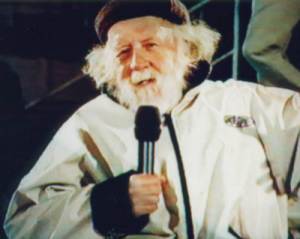
Hubert Reeves at the TV show "La nuit des étoiles."
Hubert Reeves has written, with three other scientists, Jean Heidman, Alfred Vidal-Madjar and Nicolas Prantzos, a successful book called "Are we Alone in the Universe?" , (Sommes-nous seuls dans l'Univers?, 2000), in which they discuss the probability of other civilisations, the perspectives of space travel, and the chances of the SETI programs ("Search for Extraterrestrial Intelligence") attempting to detect radio signs of ET life in radio-astronomical observatories. As we are going to see, these four authors are quite representative ot the French scientific establishment.
In that book, UFOs are just mentioned in the introduction, signed by the three writers who interviewed these scientists, who state expeditiously:
"So, for some years now, the hypothesis of exterrestrial life has left the field of vain speculations about UFOs, to enter with full authority the field of fundamental research."
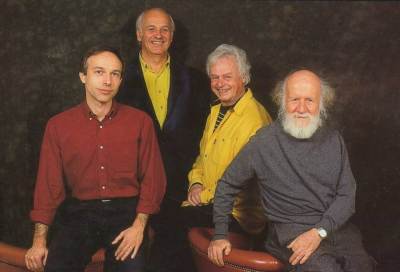
The authors of the book "Are we alone in the Universe?"
From left to right: Nicolas Prantzos, Alfred Vidal-Madjar, Jean Heidman and Hubert Reeves
Jean Heidman, astronomer at the Paris-Meudon observatory who died last year, was the French proponent of the SETI program and the author of several books on the subject. He argued that SETI is a much more "profitable" ("rentable") approach than UFO research. We must understand that he was fighting all the time to get credits for the French SETI program! He complained that SETI was badly considered and that France always refused to officially support that program. This may be the main reason why Heidman was violently opposed to UFOs. He went as far as leaving a liveTV program in the middle of it because they started talking about UFOs: he was scared at the mere idea of being associated with UFO research. To reject UFOs, he referred to the psychosociological explanations of sociologist and UFO "expert" Pierre Lagrange, and that was all he cared to say about it.
In this collective book, Jean Heidman expressed however an interesting idea: he thought that many scientists refuse to examine the hypothesis of an extraterrestrial intelligence because they find this idea "humiliating." That's a good remark, on which I would like to come back in a moment.
Alfred Vidal-Madjar has many titles: Director of research at the Paris Institute of Astrophysics (an institute of the CNRS), professor at the prestigious Ecole Polytechnique, he is one of the astrophysicists searching extrasolar planets.
Vidal-Madjar leans toward the idea that we are alone in the universe. To the question "So, all well considered, could it be that we are alone in the Universe?," he answers:
"Alas, I am under that impression. Or, fortunately, who knows? In any case, we have rather the sensation that it is not crowded up there. Let's say that, if we were not alone, we would know about it!"
In the same book, Nicolas Prantzos, a young researcher of the CNRS, specialist of nuclear astrophysics, is of the same opinion as Vidal-Madjar, and they both refer to the famous "Fermi Paradox" already mentioned.
André Brahic, in his best selling book "Children of the Sun" (Les enfants du Soleil, 1999, pages 312-313) had some of the harshest words ever on UFOs:
"Let us waste no time on those who exploit human credulity, telling stories of "flying saucers" or "unidentified flying objects" - the UFOs"… "The idea that astronauts would have visited the Earth in the past, to teach ancient civilisations the gist of their knowledge, is a true insult to intelligence and to the achievments of these civilisations….Like in the case of astrology, it is dishonourable to exploit in such a way the naivety of the public!"
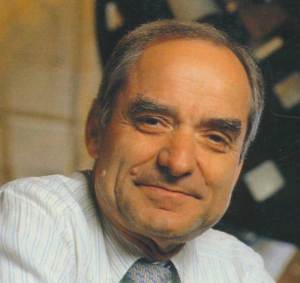
Astronomer André Brahic
Well, a few of of his colleagues did talk positively about UFOs. Let's mention here two astronomers of good standing, Guy Monnet and Jean-Claude Ribes, coauthors of the book "Extraterrestrial Life" (La vie extraterrestre, 1990), which contained an excellent chapter on UFOs. Ribes, who is now retired, was director of the Lyon observatory, and Ribes was director of the telescope of France and Canada in Hawaï.
On the other hand, two French astronauts are among the most negative on UFOs. They are Jean-Loup Chrétien and Patrick Baudry, who have both scorned recently "UFO believers" on TV.
The hard core "rationalists": how influential are they today?
These are some historical strongholds of French rationalism:
- The "Union rationaliste" oriented politically to the left (long time president: Evry Schatzman, and Jean-Claude Pecker).
- The French Csicop: Henri Broch, the "Zeteticiens" and the"Comité français pour l'Etude des phénomènes paranormaux".
- The "French Association pour l'Information Scientifique" (afis), and its review "Science et pseudo-sciences" (scientific counsels: Jean-Claude Pecker, Henri Broch, Jean Bricmont, etc).
It may be argued that their numbers and their influence on opinion are now in decline. Who cares today about the "Union rationaliste? A man like Henri Broch is still regularly invited in the media, but my bet is that his influence is going to be reduced.
The dwindling crowd of French skeptical ufologists
The skeptical trend became prevalent in French ufology toward the end of the seventies, with books of Monnerie, Barthel and Brucker. They were followed by a whole generation of young ufologists, such as sociologist Pierre Lagrange, Bertrand Meheust and the numerous "psycho-sociological" school, who were well received in the French media. But their ranks tend to be dwindling slowly now.

Sociologist Pierre Lagrange
Lagrange and Meheust, long time mediatic skeptics on UFOs, seem to have changed somewhat, recently, and it may be a sign of changing times. Meheust, after studying the Belgian wave of 1989-1991, published a little book titled "Return to the The Belgian Anomaly" (Retour sur l'anomalie belge, 2000). Similarly, Lagrange has decided to depart from what he calls a "reductionist" ufology. In an article published by the Belgian review Inforespace (June 2000), he claimed that we should start again "from zero." I am not the only one to think that he spoke for himself!
Few intellectuals have ever cared, or dared, to talk about UFOs. When they have done so, it has always been, so far, to throw them in the pit of "irrational" beliefs, together with astrology, etc.
In France, an ancestor of that classical approach was Roland Barthes, in his book Mythologies (1957). He pinned down the "Martians" in three pages, calling them a "petite-bourgeoise" mythology. We must admit that this kind of contemptuous thinking is still present today in France.
Among those who have dared to mention UFOs at all in recent years, are the historian Paul Veyne, professor at the prestigious Collège de France, and the popular genetician and philosopher Albert Jacquard. Both of them are willing to suppose that there are ET civilisations, but still reject UFOs. The question is: how long is this attitude going to last?
At a Swiss TV program of Suisse Romande, Albert Jacquard concluded with a curious statement. He said that if we came in contact with another civilisation, he would ask them to wait 50,000 years before coming to see us, because we are not ready to receive them! This may betray a deep feeling of fear, parhaps, about the perspective of an alien presence.
Isabelle Stengers, a well known Belgian philosopher of sciences, gave a clear explanation of the roots of scientific skepticism, on the ARTE TV program of 1996. She stressed that, when a phenomenon happens outside of their field of scientific knowledge, "they don't like that at all" and they tend to disqualify it as belonging to irrational beliefs. For Stengers, this attitude of rejection is almost "pathological."
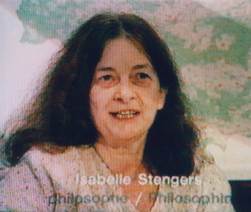
Philosopher Isabelle Stengers
French astronomer Pierre Guérin, who died in 2000, was one of the very few scientists who publicly defended UFOs in France. But he had to face such sharp criticism from his colleagues, coming especially from astrophysicist Evry Schatzman, a long time president of the "Union Rationaliste," and a powerful figure of the scientific establishment, that he became very pessimistic. In his book "UFOs: the mechanisms of a disinformation" (OVNI. Les mécanismes d'une désinformation, 2000), published just before his death, Guérin expressed the opinion that the American policy of UFO secrecy is not near its end, because the revelation of an alien presence would be too great a shock for Mankind.

Astronomer Pierre Guérin
It may be argued, however, that negative attitudes regarding UFOs are likely to regress, gradually. Here is an interesting exemple which suggests that. 1995 was the year of the biggest turmoil in ufology worldwide, with the "scandal" of the so called "Alien Autopsy Footage." In France it was an uproar in the press. At the national, Franco-German TV network ARTE, there was a little debate between several scientists and intellectuals, among whom Paul Veyne, Henri Broch and Pierre Lagrange, gathered by journalist Michel Polac. They scorned the film so much that it was very negative against UFOs as well, inevitably. In fact, it was very poor debate. But a few months later, the same network ARTE broadcast a much more serious and positive program on UFOs called "UFO Researchers" (Chercheurs d'OVNI, March 17, 1996) with many guests such as Stanton Friedman and professor Auguste Meessen, and that show reinstated UFOs as a serious subjet in France.
"Wait and see" in the scientific press
The French scientific press has been negative most of the time on UFOs. But again, things might change someday. Here is the interesting example of Olivier Postel-Vinay, Editor in Chief of the reputed review La Recherche. Invited to a debate at the French national TV network FR3, he explained that he was there to "amuse himself." I was invited too and I had a private talk with him later in the train. After some discussion, he concluded: "let's wait and see"!
But it means that, if and when some big news come out, the scientific establishment will run to catch the train!
Two recent initiatives suggest that there may be some change of mood in France.
The COMETA report "UFOs and Defense. What must we be prepared for?" (Les OVNI et la Défense: à quoi doit-on se préparer?), was a big surprise in July 1999, but met with some violent negative reactions. However, it attracted attention abroad, around the world, because it was signed by an impressive group of senior military officers and engineers, led by the air force general Denis Letty, and because they dared to raise the question of American secrecy. It was not an official document, but it was pretty close to it.
In september 2001, the film "UFOs: The American secret" (OVNI: le secret américain), on the national network France 2, was well received in the French press. Ironically, it was shown on the same national network which had aired the annual big astronomy show with Hubert Reeves, exactly one month before, where UFOs are banned! Perhaps it was not a pure coïncidence.
Another exemple of limited overture in the French media was given recently by an influential journalist, Franz-Olivier Giesbert, Director of the magazine Le Point and producer of a cultural TV show. He had invited the young astrophysicist Nicolas Prantzos, but when Prantzos said "I think we are alone," Giesbert played him a vigorous declaration, that was pre-recorded, of journalist Jean-Claude Bourret, a long time proponent of UFOs. And Giesbert concluded "Et toc!," which means something like "You asked for it!"
But lets' not hope to much, too fast. These are just little signs of a gradual change of mood in the French media.
There are still negative factors for UFO credibility
Unfortunately, there are still negative factors against the credibility of ufology.
In book stores, ufo books are always placed in the esoteric department, where they are in competition with astrology, and with proponents of sensational claims of all kinds. The book of David Icke The Biggest Secret (1999), is a best seller in France and a good exemple of that sort of claims. Similarly, ufology has suffered a lot in France of sects, supposedly inspired by extraterrestrials, such as the Raelians, the "Ordre du Temple solaire," and the the Mandarom.
With such a background, it is no wonder that ufology is often thrown by intellectuals into the black pit of irrational beliefs, together with "false sciences" and all sorts of deceptions. Umberto Eco just recently said as much in a monthly chronicle, denouncing the exploiters of popular gullibility (Libération, February 18, 2002).
Another exemple of detrimental beliefs is the Ummo affair - allegedly a bunch of extraterrestrial letters originating in Spain in the sixties, which became popular in France in the nineties after two best selling book of the maverick physicist Jean-Pierre Petit. I tried expose these dubious claims in an article published on the Internet (see the French website http://www.ufocom.org/UfocomS/ummo_GB0).
Debunking is still at work, world wide
A good, recent exemple of UFO was the preposterous announcement in Great Britain of the closure of the "Flying Saucer Bureau" (in The Times of April 23, 2001) . It got big media coverage, around the world. In France, many newspapers and radios reported it, without any questioning. But when Denis Plunket, responsible for that tiny group, denounced the false news, nobody in the press cared to mention it. UFO debunking is still alive and well!
British journalist and Georgina Bruni, author of an excellent book on the allegeged UFO landing near the air base of Rendlesham, revealed a private conversation she had with former prime minister Margaret Thatcher. Asked about UFOs, she replied: "You must get your facts right, and you cannot tell the people." Clearly, UFOs are still a very secret affair. The title of her book is, appropriately, You Cannot Tell the People (2000).
Many ufologists have denounced for a long time the strange, negative attitude of US governmental services regarding UFOs. It would be much too long to tell the story here. Let's just mention two recent, well documented books on UFO secrecy, for those interested:
UFOs and the National Security State by Richard Nolan (2000), and UFO FBI Connection by physicist Bruce Maccabee (2000).
At the center of that problem lies the now famous Roswell case, with hundreds of witnesses, and more are coming, almost every year. The dubious explanations of the Air Force on Roswell look less and less credible, even for the mainstream media, and the question is now: how long are they going to be able to maintain the big UFO secrets?
Thousand of pages of official documents have been released under the Freedom of Information Act (FOIA), since the seventies in the United States. Many witnesses, civilian or military, have come out and spoken publicly about secret operations. In addition to that, controversial documents have been circulating, such as the famous "MJ-12" papers, which total now more than 2,000 pages. Stanton Friedman and Dr Robert Wood are among the most active researchers on these documents. Although they are denied by the authorities, they seem to originate from secret services, and seem to contain a peculiar mix of truths and lies, about UFO secrets. It is much too long to detail all that here. I have tried to make this known in France with my book "UFOs ; the gradual lifting of Secrecy" (OVNIS: la levée progressive du secret, 2001).
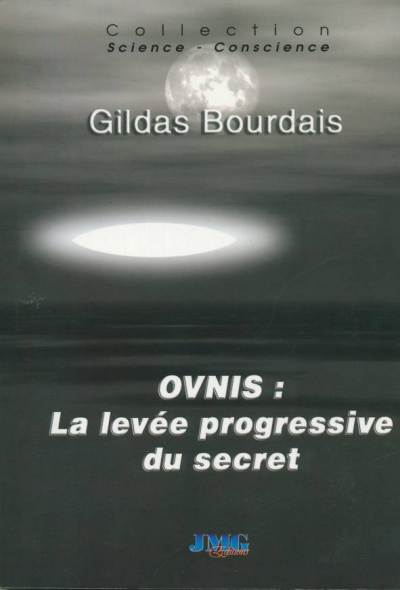
In the United States, there are some interesting initiatives, pushing toward the release of UFO secrets. Private UFO studies are still strong, as shown for exemple by the book of Richard Hall The UFO Evidence (new edition, 2001), or by the book of physicist Peter Sturrock, The UFO Enigma (1999), presenting the study of a workshop gathered by Laurance Rockefeller in October 1997.
The same Rockefeller made serious efforts, privately, to draw attention of President Clinton and his Science Advisor Jack Gibbons, in the years 1993-1994, but it was impaired by the Air Force negative study on Roswell, as told by researcher Grant Cameron, who has obtained all the correspondance under FOIA. It casts light on how even a President may be kept out of the big UFO secrets.
Other good efforts are, for instance the gathering of pilots testimonies by Dr Haines and NARCAP, the inquiries of NIDS (National Institute for Discovery Science), financed by Robert Bigelow in Las Vegas. NIDS seems to play an ambiguous role, which may well be of helping a policy of gradual release of secrecy. Another interesting initiative has been in 2001 the controversial "Disclosure Project" of Dr Greer: a mixed bag of very good, or not so good witnesses.
Gradual release in the media?
In the past, it is clear that the American media, especially the main newspapers, have had a long story of cooperation with the government. This is told in revealing book, The Missing Times by Terry Hansen (2000), and also, on a more anecdotal mode, in Hollywood versus the Aliens by Bruce Rux (1997).
The mass media have helped, no doubt, the policy of secrecy. However, It is possible that some films and TV series, like Star Trek, have been designed to help a policy of gradual information on UFOs and aliens. A new, interesting development is the announcement that Steven Spielberg is producing a big TV series on UFOs and abductions, called Taken, to be released at the end of 2002.
The Internet is also, without doubt, a powerful factor for freeing and accelerating information, in spite of the risks of disinformation. Real progress has been accomplished in France on the internet, recently, with several new web sites and forums.
In short, it can be said that there are serious efforts going on toward the release of secrecy. But there remains an unknown factor: the alien "agenda," and their increasing presence, worldwide, apparently. What do they want? We don't know yet.
March 2002